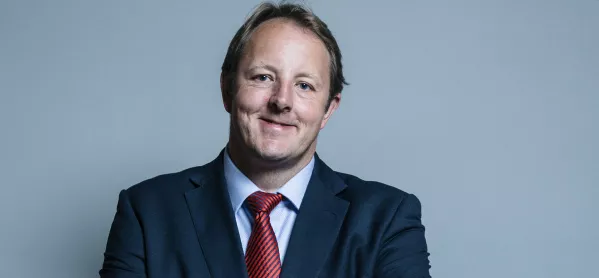The government would have to pay apprentices' wages to be able to offer an "apprenticeship guarantee", Labour’s shadow apprenticeships and lifelong learning minister Toby Perkins has said. He said an apprenticeship required employers to take on a young person and pay them a wage, and they would not be "in the market to do that".
Speaking to Tes the day after prime minister Boris Johnson said it was "vital" to guarantee apprenticeships for young people most at risk of losing their job during the coronavirus pandemic, Mr Perkins said it would not be enough for the government to fund only the training of apprentices.
He said: “The government cannot claim that paying for training offers an apprenticeship guarantee. An apprenticeship relies on an employer being willing to employ an apprentice and pay their wages.
“I’m very keen that if there’s anything we can do to encourage them to offer policy like this that that is fantastic, but I’m not going to let them get away with pretending that they are guaranteeing young people anything without actually doing that.”
News: Young people should get apprenticeship guarantee, says PM
Background: I will look into an apprenticeship guarantee – Johnson
More: If our PM 'gets' apprenticeships, where is the support?
An apprenticeship guarantee was first mooted last week, when during a meeting of the House of Commons Liaison Committee, Commons Education Select Committee chair Robert Halfon asked the prime minister if he would consider introducing an apprenticeship guarantee for every young person aged 16-25. Boris Johnson responded that he "totally agreed" that apprenticeships would play a "huge part in getting people back on to the jobs market and getting them into work and we will look at anything to help people".
In yesterday's daily Number 10 briefing, Mr Johnson said it was "going to be vital" that apprenticeships are guaranteed. He said: "We have to look after people across the board, but young people, I believe, should be guaranteed an apprenticeship."
Mr Perkins said that employers weren’t in the market to pay wages due to the current economic situation.
He said: “Even for them to get an apprenticeship in the first place, it requires an employer to take them on and to pay their wages for a year, and I don’t think they are going to be in the market to do that. So unless the government plans to pay their wages then they cannot use the word 'guarantee'.”
He added that “language is important” and that using the term “guarantee” promises young people something that simply is not true.
He said: “I think language is important and the term guarantee promotes something that isn’t true, there is no guarantee. From a young people’s point of view, they then get people looking at them and saying, 'Well, why are you unemployed, because the government’s guaranteed apprenticeships, so if you wanted an apprenticeship you could have had one'.”
Reaction from the sector
The proposal of an apprenticeship guarantee has sparked much reaction from the sector.
Association of Colleges chief executive David Hughes said that colleges would be "front and centre" to making such a policy happen.
Meanwhile, Stephen Evans, chief executive of the Learning and Work Institute, said that he was not sure if an apprenticeship guarantee was "the right way to go".
A Department for Education spokesperson said: “Apprenticeships are an excellent way to get into a wide range of rewarding and valuable careers, and they will continue to play a vital role in delivering the high-quality skills employers need and that will support our economic recovery post Covid-19. We are looking at ensuring that we support employers, especially small businesses, to take on new apprentices this year and will provide further detail in due course.”




